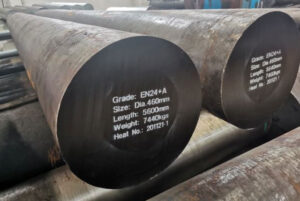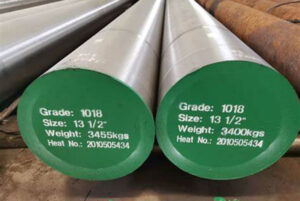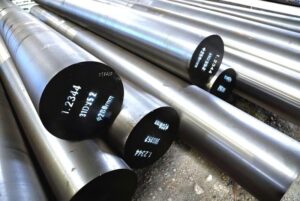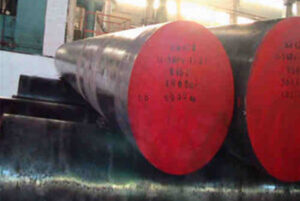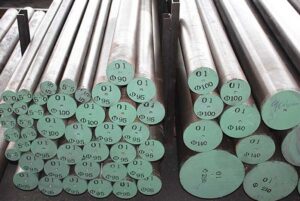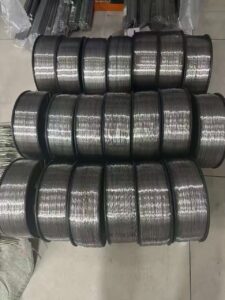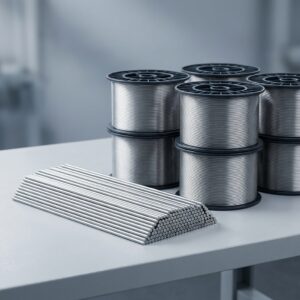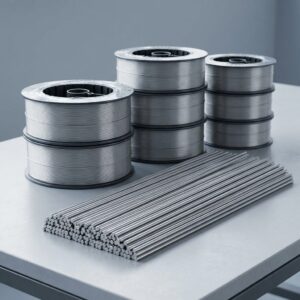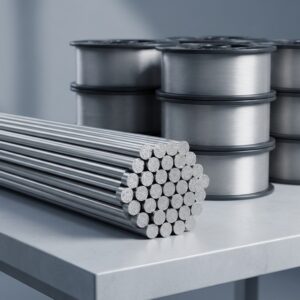Imagine a metal that can withstand immense pressure, maintain exceptional strength, and remain surprisingly versatile. That’s the magic of 30CrNiMo8/1.6580 alloy steel, a true workhorse in the world of engineering materials.
This special steel isn’t your average hardware store find. It’s a meticulously formulated alloy specifically designed to excel in demanding applications where strength and toughness are paramount. But what exactly makes 30CrNiMo8/1.6580 so special? Let’s delve into its composition, properties, and the countless ways it shapes our world.
Unveiling the Composition: Building Blocks of Strength
At the heart of 30CrNiMo8/1.6580 lies a carefully balanced blend of elements. Here’s a breakdown of its key ingredients and their contributions:
- Carbon (C): The foundation of all steels, carbon provides the base for strength and hardness. In 30CrNiMo8/1.6580, the carbon content typically ranges between 0.26% and 0.34%, striking a sweet spot between strength and weldability.
- Manganese (Mn): This essential element acts as a deoxidizer, helping remove impurities during steel production. It also contributes to increased strength and hardenability. The typical manganese content sits between 0.5% and 0.8%.
- Chromium (Cr): A true champion of corrosion resistance, chromium forms a protective oxide layer on the steel’s surface, safeguarding it from environmental attacks. In 30CrNiMo8/1.6580, chromium content is usually between 1.8% and 2.2%.
- Nickel (Ni): Nickel enhances toughness and low-temperature performance, making the steel more resilient in harsh conditions. Its typical range in 30CrNiMo8/1.6580 is 1.8% to 2.2%.
- Molybdenum (Mo): This crucial alloying element further boosts hardenability and high-temperature strength, allowing the steel to perform exceptionally even under extreme heat. The molybdenum content typically falls between 0.3% and 0.5%.
These elements, when combined in precise proportions, create a steel that’s much stronger and more versatile than plain carbon steel. It’s like a superhero team, where each member brings unique strengths to the table, resulting in an unbeatable combination.
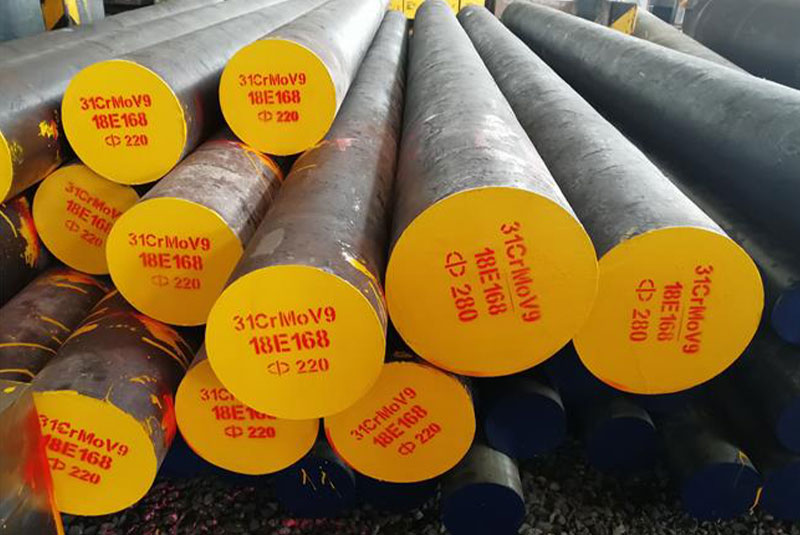
Properties that Impress: A Steel with Mettle
The magic of 30CrNiMo8/1.6580 goes beyond its composition. Its properties truly set it apart:
- High Strength: With a typical tensile strength ranging from 1100 to 1300 N/mm², this steel can withstand significant loads without breaking or deforming excessively. Imagine a bridge built with this material – it would carry enormous weight with unwavering stability.
- Excellent Toughness: Toughness refers to a material’s ability to absorb energy before fracturing. 30CrNiMo8/1.6580 exhibits impressive toughness, making it ideal for applications where components experience impact or shock loads. Think of a crankshaft in a car engine – it needs to withstand the constant pounding of pistons without succumbing to cracks.
- Good Hardenability: This property allows the steel to achieve high hardness through heat treatment processes like quenching and tempering. The increased hardness translates to even greater strength and wear resistance, making it perfect for gears, shafts, and other components subjected to friction.
- Weldability: While not considered a “super-weldable” steel, 30CrNiMo8/1.6580 can be welded with proper techniques and preheating procedures. This flexibility expands its potential applications in various fabrication projects.
These properties, combined with its reasonable cost compared to some other high-performance steels, make 30CrNiMo8/1.6580 a highly sought-after material for a wide range of demanding engineering applications.
Applications: Where 30CrNiMo8/1.6580 Shines
30CrNiMo8/1.6580 isn’t a jack-of-all-trades material used for everything from building fences to crafting jewelry. Its true strength lies in its ability to excel in specific applications where its properties are a perfect match:
- Automotive Industry: From crankshafts and connecting rods to gears and axles, 30CrNiMo8/1.6580 finds itself at the heart of a car’s powertrain. Its ability to withstand immense pressure, resist wear and tear, and maintain structural integrity makes it a crucial component in ensuring smooth and reliable engine operation.
- Construction Machinery: Heavy-duty construction equipment like excavators, bulldozers, and cranes demand robust materials that can handle the rigorous workloads. 30CrNiMo8/1.6580 steps up to the challenge, providing exceptional strength and toughness for critical components like shafts, arms, and buckets.
- Oil and Gas Industry: Drilling deep into the earth’s crust for oil and gas extraction requires equipment that can withstand extreme pressures and harsh environments. 30CrNiMo8/1.6580 plays a vital role in drill pipes, wellheads, and other components that need to be both strong and corrosion-resistant.
- Agriculture: Modern agricultural machinery like tractors and harvesters require robust materials to handle tough terrains and heavy loads. 30CrNiMo8/1.6580 is used in gears, axles, and other critical components that ensure these machines function reliably and efficiently.
- General Engineering: Beyond these specific industries, 30CrNiMo8/1.6580 finds applications in various general engineering projects. Its versatility makes it suitable for shafts, gears, fasteners, and other components requiring a balance of strength, toughness, and cost-effectiveness.
Metal Powders for Additive Manufacturing
While traditionally used in wrought forms like bars, plates, and sheets, 30CrNiMo8/1.6580 is increasingly being explored for additive manufacturing (AM) techniques like 3D printing. Here’s a look at some specific metal powder models for 30CrNiMo8/1.6580:
- Höganäs AM Powder 1.6580: This gas-atomized powder offers excellent flowability and packing density, making it suitable for various AM processes like laser melting.
- APWorks 30CrNiMo8 Powder: Known for its high sphericity and tight particle size distribution, this powder promotes good printability and mechanical properties in the final parts.
- SLM Solutions SX | 1.6580: Tailored specifically for laser beam melting (LBM) processes, this powder offers high laser absorptivity and promotes good layer fusion for strong and reliable printed parts.
- Carpenter Additive AM303: This metal powder boasts a balanced composition similar to 30CrNiMo8/1.6580 and is optimized for use in LBM and electron beam melting (EBM) techniques.
- EOS GmbH 30CrNiMo8: This gas-atomized powder is compatible with various EOS AM systems and offers good printability for complex geometries.
- LPW – Wohlers 30CrNiMo8: This powder caters to LPW’s selective laser melting (SLM) technology and offers consistent particle size and morphology for predictable printing results.
- DMG MORI SEIKI Co., Ltd. – NiCrMo Alloy (Ni-0.8 Cr-1.8 Mo-0.3): This metal powder, while not an exact match to 30CrNiMo8/1.6580, offers a similar balance of strength and toughness and is compatible with DMG MORI’s Selective Laser Melting (SLM) systems.
- ExOne GmbH – Invemetal Maraging Steel 300: Another close relative, this metal powder boasts high strength and good printability for use in binder jetting AM processes.
- Voxeljet AG – VA302: Formulated for Voxeljet’s binder jetting technology, this metal powder offers properties similar to 30CrNiMo8/1.6580 and is suitable for applications requiring a balance of strength and affordability.
- Desktop Metal – AM 300: Designed for use in Desktop Metal’s single-pass jetting (SPJ) technology, this metal powder offers a fast and cost-effective way to produce parts with properties comparable to 30CrNiMo8/1.6580.
It’s important to note that while the metal powder models listed above offer promising potential for 30CrNiMo8/1.6580 in additive manufacturing, the technology is still under development. Here’s a closer look at some of the considerations:
- Powder Properties: The printability and final part quality heavily depend on the metal powder’s characteristics like particle size distribution, morphology, and flowability. Manufacturers are constantly refining their powders to optimize these factors for 30CrNiMo8/1.6580 in AM processes.
- Process Compatibility: Different AM techniques have varying requirements for metal powders. Choosing the right powder for a specific AM process like laser melting, electron beam melting, or binder jetting is crucial for successful part production.
- Mechanical Properties: While the metal powder composition may mimic 30CrNiMo8/1.6580, the AM process itself can influence the final part’s mechanical properties. Heat treatment and post-processing techniques play a vital role in achieving the desired strength, toughness, and wear resistance in 3D-printed components made from 30CrNiMo8/1.6580 powder.
Despite these considerations, the potential benefits of using 30CrNiMo8/1.6580 in AM are significant. Here are some advantages to consider:
- Design Freedom: AM allows for the creation of complex geometries that are difficult or impossible to achieve with traditional manufacturing methods. This opens up new design possibilities for components requiring exceptional strength and toughness.
- Lightweighting: The ability to create intricate internal structures in AM parts can lead to weight reduction while maintaining strength. This is particularly beneficial in applications like aerospace and automotive where weight is a critical factor.
- Reduced Waste: AM offers a more targeted approach to material usage, minimizing waste compared to traditional subtractive manufacturing techniques.
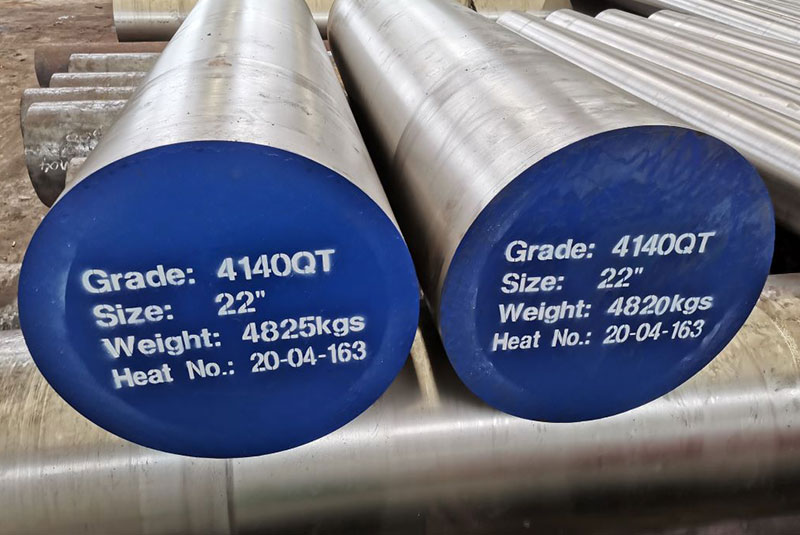
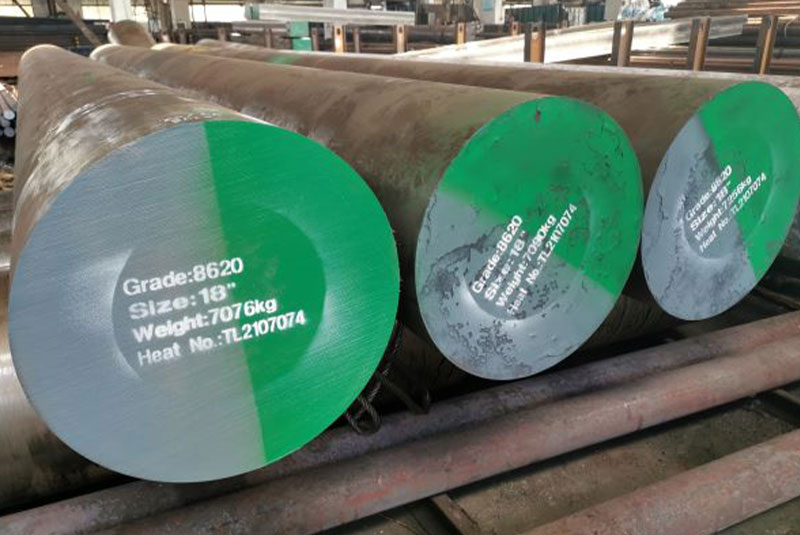
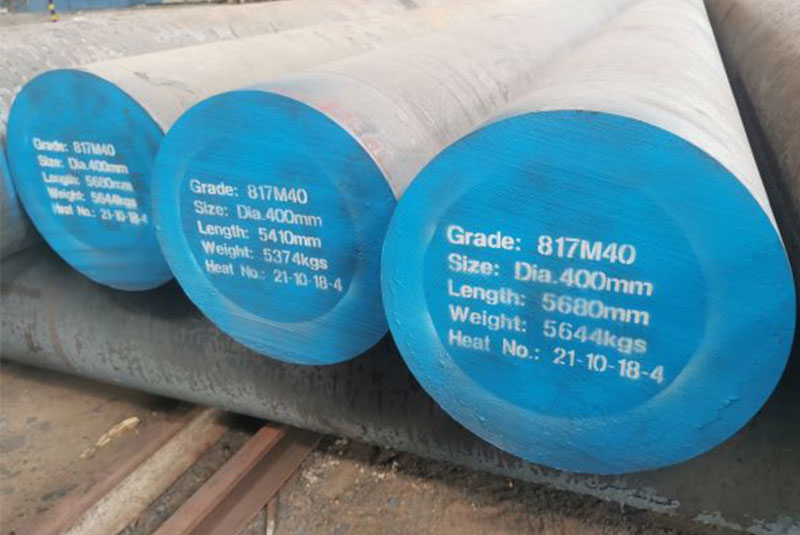
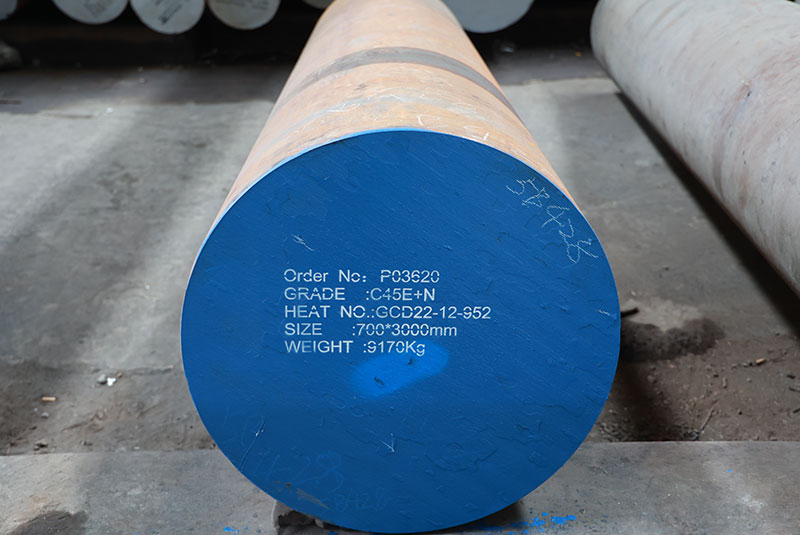

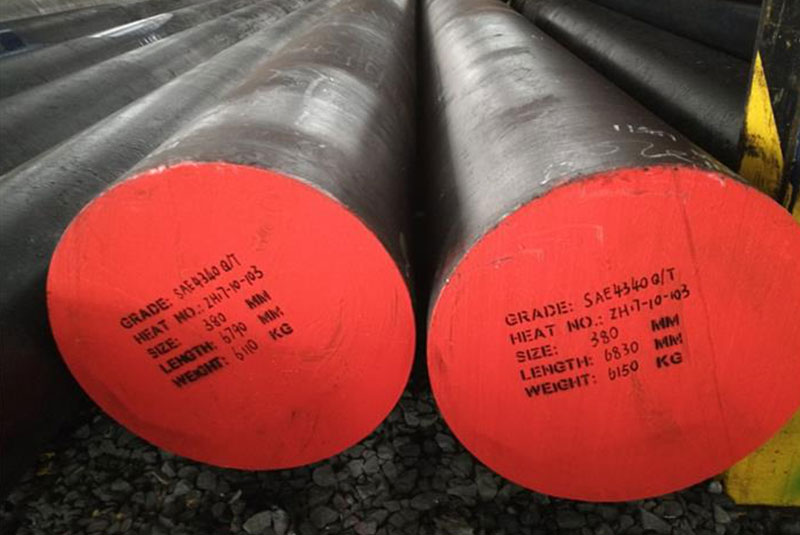
Advantages and Limitations: Weighing the Pros and Cons
30CrNiMo8/1.6580 isn’t a perfect solution for every application. Here’s a balanced view of its strengths and weaknesses:
Advantages:
- High Strength and Toughness: This steel offers exceptional resistance to deformation and fracture, making it ideal for demanding applications.
- Good Hardenability: The ability to achieve high hardness through heat treatment further enhances its wear resistance.
- Weldability: While not the most weldable steel, it can be joined with proper techniques, expanding its application possibilities.
- Cost-Effective: Compared to some other high-performance steels, 30CrNiMo8/1.6580 offers a good balance of properties at a reasonable cost.
- Emerging Potential in AM: With ongoing research and development, 30CrNiMo8/1.6580 shows promise for creating strong and complex parts using additive manufacturing techniques.
Limitations:
- Corrosion Resistance: While offering some level of corrosion resistance due to chromium content, 30CrNiMo8/1.6580 may not be suitable for highly corrosive environments compared to specialized stainless steels.
- Machinability: It can be more challenging to machine than some plain carbon steels, requiring specific tooling and techniques.
- Not Readily Available in All Forms: Depending on the region and supplier, certain shapes and sizes of 30CrNiMo8/1.6580 might have limited availability.
- AM Considerations: As mentioned earlier, AM technology with 30CrNiMo8/1.6580 powder is still under development, requiring careful selection of powder properties and AM processes to achieve desired results.
Understanding these advantages and limitations is crucial for making informed decisions about whether 30CrNiMo8/1.6580 is the right material for your specific application.
Typical Specifications, Sizes, and Grades
30CrNiMo8/1.6580 adheres to various international standards, ensuring consistent quality and properties. Here’s a glimpse into its specifications:
| Property | Typical Value | Standard |
|---|---|---|
| Carbon (C) Content | 0.26% – 0.34% | ASTM A476, EN 10083-2 |
| Manganese (Mn) Content | 0.5% – 0.8% | ASTM A476, EN 10083-2 |
| Chromium (Cr) Content | 1.8% – 2.2% | ASTM A476, EN 10083-2 |
| Nickel (Ni) Content | 1.8% – 2.2% | ASTM A476, EN 10083-2 |
| Molybdenum (Mo) Content | 0.3% – 0.5% | ASTM A476, EN 10083-2 |
| Tensile Strength | 1100 – 1300 N/mm² | ASTM A476, EN 10083-2 |
| Yield Strength | ≥ 1050 N/mm² | ASTM A476, EN 10083-2 |
| Elongation | ≥ 9% | ASTM A476, EN 10083-2 |
Available Sizes and Grades
30CrNiMo8/1.6580 is typically available in various shapes and sizes, catering to diverse applications. Here’s a common breakdown:
- Shapes: Rounds, bars, flats, plates, and seamless tubes are readily available from many steel suppliers.
- Sizes: Diameters for rounds and bars can range from a few millimeters to several hundred millimeters, depending on the supplier’s capabilities. Flats and plates come in various thicknesses and widths. Seamless tubes offer a range of diameters and wall thicknesses suitable for specific applications.
- Grades: While 30CrNiMo8/1.6580 is the most common designation, some suppliers might offer variations with slightly different chemistries or specific heat treatment conditions. It’s always best to consult the supplier’s specifications for details.
Suppliers and Pricing
The availability and pricing of 30CrNiMo8/1.6580 can vary depending on factors like location, quantity required, and the specific shape and size needed. Here are some general pointers:
- Global Reach: Major steel mills and distributors around the world offer 30CrNiMo8/1.6580, making it a readily available material.
- Quantity Discounts: Purchasing larger quantities typically translates to lower per-unit costs. Negotiating with suppliers for bulk orders can be beneficial.
- Minimum Order Quantities: Some suppliers might have minimum order quantities for specific shapes or sizes.
- Metal Powder Pricing: The pricing of 30CrNiMo8/1.6580 metal powder for AM is generally higher than traditionally produced forms due to the specialized production process. However, advancements in AM technology are expected to bring down powder costs in the future.
For the most current pricing information, it’s recommended to contact steel suppliers directly and request quotes based on your specific needs.
Finding the Right Supplier:
Here are some tips for finding reliable suppliers of 30CrNiMo8/1.6580:
- Reputation: Look for suppliers with a good track record of supplying high-quality steel products. Online reviews and industry recommendations can be helpful in this regard.
- Material Certifications: Ensure the supplier can provide proper material certifications that meet your project requirements.
- Capabilities: Verify that the supplier offers the specific shapes, sizes, and heat treatment conditions (if applicable) of 30CrNiMo8/1.6580 that you need.
- Value for Money: Compare prices and offerings from multiple suppliers to find the best value for your project.
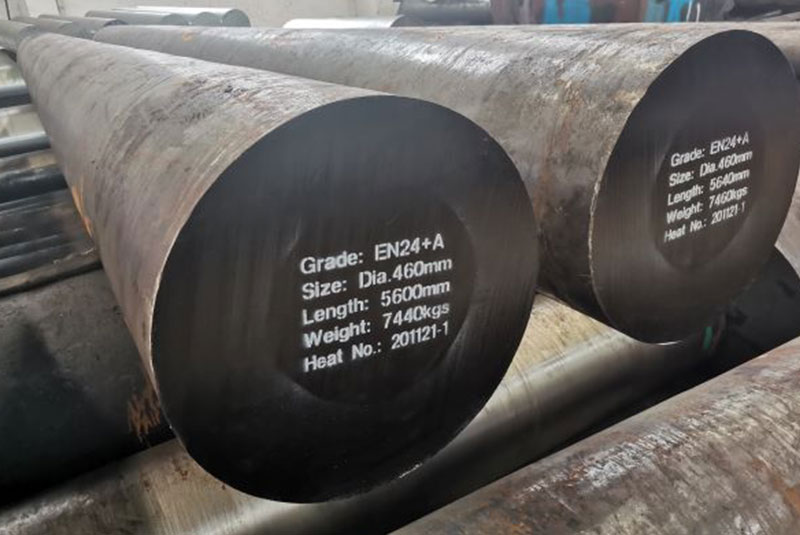
FAQ
Q: What is 30CrNiMo8/1.6580 used for?
A: 30CrNiMo8/1.6580 is a versatile steel used in various demanding applications requiring high strength, toughness, and good hardenability. Some common applications include automotive components, construction machinery, oil and gas equipment, agricultural machinery, and general engineering projects.
Q: How does 30CrNiMo8/1.6580 compare to other steels?
A: Compared to plain carbon steel, 30CrNiMo8/1.6580 offers significantly higher strength and toughness due to its alloying elements. While some other high-performance steels offer even greater strength, 30CrNiMo8/1.6580 strikes a good balance between properties and cost-effectiveness.
Q: Is 30CrNiMo8/1.6580 a good choice for 3D printing?
A: 30CrNiMo8/1.6580 shows promising potential for additive manufacturing (AM) techniques like 3D printing. Metal powders formulated with a similar composition are becoming available. However, AM technology with this material is still under development. Factors like powder properties, process compatibility, and post-processing techniques need careful consideration to achieve desired results in 3D-printed parts.
Q: What are some alternatives to 30CrNiMo8/1.6580?
A: The choice of alternative steel depends on the specific application requirements. Here are some possibilities:
- For higher strength: 4140 chromoly steel offers even greater strength compared to 30CrNiMo8/1.6580, but it comes at a higher cost and may have slightly lower toughness.
- For better corrosion resistance: Stainless steel grades like 304 or 316 offer superior corrosion resistance but might not be as strong as 30CrNiMo8/1.6580.
- For improved machinability: Lower-carbon steels like AISI 1018 or 1045 are easier to machine but have lower strength and toughness compared to 30CrNiMo8/1.6580.
Consulting with a materials engineer or experienced steel supplier can help you determine the best alternative based on your specific project needs.
Conclusion
30CrNiMo8/1.6580 alloy steel has earned its reputation as a reliable workhorse in various demanding engineering applications. Its well-balanced combination of strength, toughness, and cost-effectiveness makes it a popular choice for critical components. As additive manufacturing technology continues to evolve, 30CrNiMo8/1.6580 holds exciting possibilities for creating strong and complex parts through 3D printing. By understanding its properties, limitations, and available forms, you can make informed decisions about whether 30CrNiMo8/1.6580 is the right material to take your projects to the next level.

